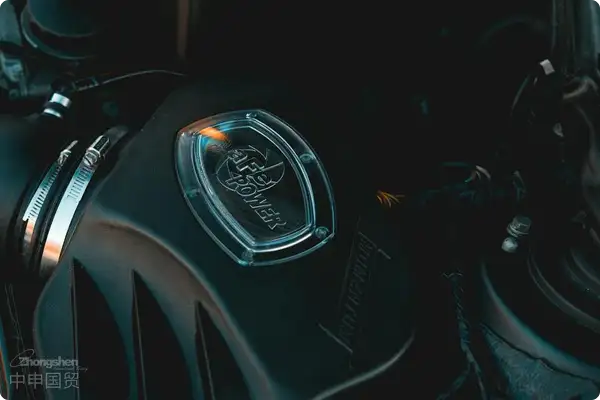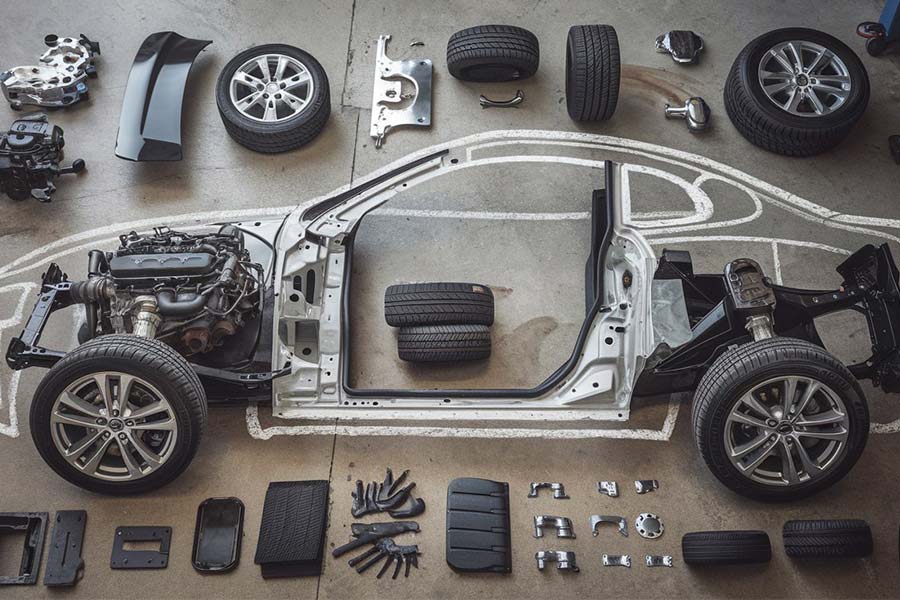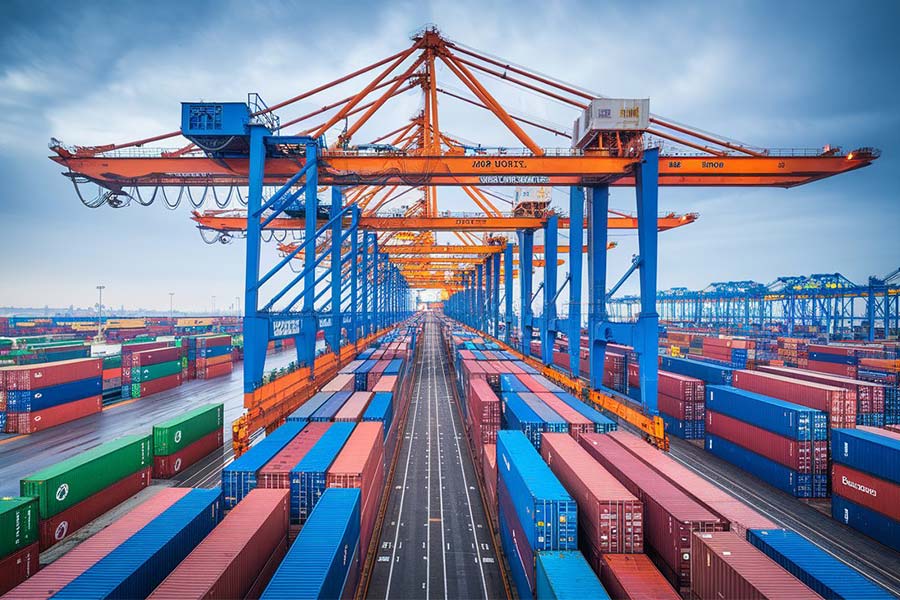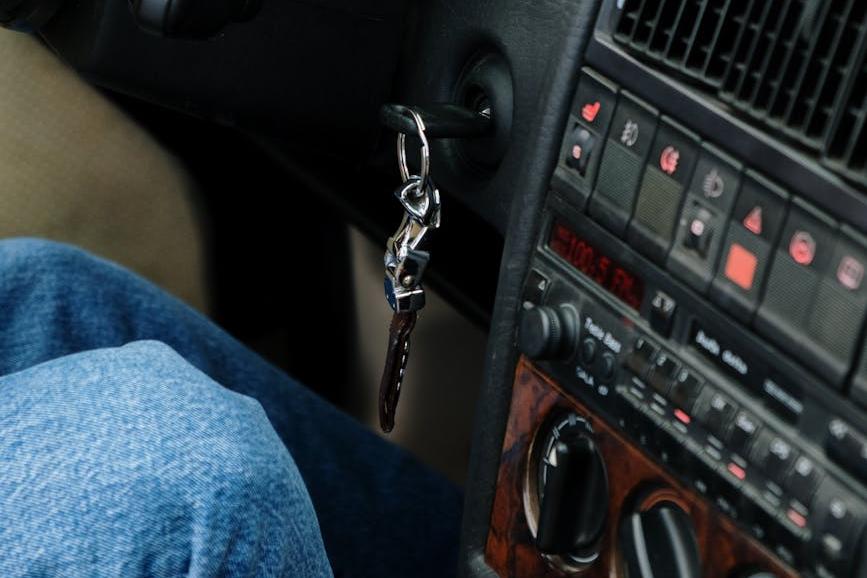- Shanghai Zhongshen International Trade Co., Ltd. - Two decades of trade agency expertise.
- Service Hotline: 139 1787 2118

ComprehensiveAutomotive partsforeign tradeImport RepresentationSolution: Industry Empowerment Practices Built on 20 Years of Experience
——Expert Perspective on Cross-Border Supply Chain Management
Against the backdrop of deep integration in the global automotive industry chain, China, as the world's largest automotive consumer market andNew energyThe demand for imported overseas automotive parts continues to rise at the Automotive Innovation Center. However, complex international trade regulations, fragmented supply chain nodes, and dynamically changing regulatory policies have become core pain points for numerous importers, distributors, and even end manufacturers. As a professional team with 20 years of deep expertise in foreign trade import agency services, we have a profound understanding of industry pain points and have refined a comprehensive, full-chainAutomotive Parts Import Agency Solutions, helping enterprises achieve efficient, compliant, and cost-effective cross-border procurement.
I. Industry Pain Points: The Four Core Challenges of Automotive Parts Importation
1.Fragmentation of supply chains and time-sensitive pressure
The automotive parts category is highly complex (including engine components, electronic components, body panels, etc.), with different categories corresponding to varying countries of origin, quality standards (such as IATF 16949, ECE R90), and logistics requirements. Small and medium-sized enterprises often struggle with supplier screening, fragmented orders, and inefficient logistics coordination due to the lack of a global procurement network, leading to uncontrollable delivery cycles.
2.Laws and Regulations and Compliance Risks
Imported automotive parts must simultaneously comply with the declaration standards of China Customs (such as HS code classification,3CExemption Application for Certification), environmental requirements (such as REACH, RoHS), and the technical standards of the target market. For example, brake pads exported to the EU must comply with the ECE R90 regulation, while certain electronic components may fall under the technical control list of the exporting country. Without a professional pre-screening mechanism, this can easily lead to customs clearance delays or the risk of return shipments.
3.Uncontrollable Hidden Costs
In addition to explicit costs (such as tariffs and freight), companies often face compressed profit margins due to hidden expenses like exchange rate fluctuations, demurrage fees, and secondary sorting and warehousing. For example, enterprises that fail to properly utilize the "bonded warehousing + centralized declaration for distributed shipments" model may incur additional costs from frequent customs declarations.
4.Information Silos and Inefficient Collaboration
The fragmentation of data across procurement, logistics, customs clearance, and taxation processes makes it difficult for enterprises to track order status in real time and respond promptly to unexpected issues (such as shipping delays or document discrepancies).
II. One-stop Solution: Full-chain Empowerment for Automotive Parts Import
With 20 years of industry experience, we have established a one-stop service system covering the entire process of "procurement-logistics-customs clearance-delivery," throughResource integration, compliance first, technology-drivenThree core strategies to systematically address industry pain points.
1. Supply Chain Integration: Global Sourcing Network and Supplier Management
- Precise supplier matching: Leveraging a database of over 2,000 high-quality suppliers spanning Europe, America, Japan, South Korea, and Southeast Asia, we screen compliant suppliers based on customer requirements (such as OE/OEM parts, aftermarket parts, and new energy-specific components), while also offering third-party factory audits and quality sampling services.
- Cost reduction through centralized procurement: By consolidating orders and adopting a centralized procurement with decentralized distribution model, logistics costs for small and medium-sized orders can be reduced. For instance, integrating goods from multiple overseas suppliers for aftermarket clients and optimizing through full-container-load transportation.Maritime TransportationRate.
2. Compliance Management: Risk Anticipation and Documentation Standardization
- HS Code Pre-classification and Tariff Optimization: For easily confused categories (such as "brake pads (8708.30)" and "brake discs (8708.40)"), collaborate with customs experts to determine the HS code in advance to avoid classification disputes; plan in conjunction with free trade agreements (such as RCEP).It is recommended to verify through the following methods:Apply to maximize tariff preferences.
- Pre - review of Technical Access: Establish a database for accessory technical parameters, anticipate compliance requirements such as 3C certification and energy efficiency labels, and assist customers in completing exemption applications or alternative solution designs.
3. Smart Logistics: Visualized and Resilient Supply Chain
- Customized Multimodal Transport Solutions: Based on the characteristics of the accessories (such as constant temperature transportation for precision instruments and framework container loading for large accessories), design the optimal route and flexibly combine sea freight,China-Europe Railway Express,Air TransportationPriority channel.
- Full - process Visual Tracking: Through our self-developed TMS system, customers can monitor cargo status in real time (such as shipping schedules, container temperatures, and customs clearance progress). The system automatically alerts for abnormal nodes (such as port congestion at the destination) and simultaneously initiates contingency plans.
4. Customs Digitalization: Intelligent Declaration and Rapid Clearance
- AI Document Review: Utilizing OCR technology to automatically recognize overseas invoices, bills of lading, and quality inspection reports, generating standardized customs declaration data with an error rate reduction of over 90%.
- Green channel for customs clearance: Established AEO mutual recognition cooperation with customs authorities in multiple regions, applying the "two-step declaration" and "advance declaration" models for high-credit clients, reducing the average customs clearance time to within 48 hours.
5. Localization Services: Warehousing, Distribution, and After-Sales Support
- VMI inventory hosting: Establish dedicated storage locations in bonded zones or domestic hub warehouses to support customers in clearing goods in batches as needed, thereby reducing capital occupation.
- Terminal distribution network: Integrate leading domestic logistics service providers to offer "door-to-door," "factory direct delivery," and expedited "last-mile" services for urgent shipments.
III. Case Demonstration: Practical Results of Cost Reduction and Efficiency Improvement
Case Background:A new energy vehicle manufacturer needs to import core components such as high-voltage wiring harnesses and IGBT modules from Germany. The original supply chain has caused production capacity fluctuations due to customs clearance delays and high transportation costs.
Solutions:
- Supply chain optimization: Consolidated orders from three German suppliers, adopted the Hamburg port full-container-load (FCL) shipping + domestic bonded warehouse distribution model, reducing unit freight costs by 18%;
- Compliance in advance: Pre-review the ECER100 certification for IGBT modules, and apply for the ATA Carnet to defer the deposit payment;
- Customs clearance acceleration: Achieve cargo release within 24 hours of port arrival through "two-step declaration."
Achievements: The overall logistics costs decreased by 22%, and the order delivery cycle was shortened from 45 days to 28 days.
IV. Future Outlook: Deep Integration of Digitalization and Green Logistics
With the widespread adoption of blockchain technology (enhancing document credibility) and carbon footprint tracking (meeting EU CBAM requirements), automotive parts imports will place greater emphasis onTransparencyandSustainability. We will continue to iterate digital tools, such as building a carbon emission management platform, to help customers optimize transportation routes, select low-carbon suppliers, and address the green transformation of global supply chains.
Conclusion
The complexity of automotive parts importation demands service providers to possess bothIndustry Know-HowandCross-border resource integration capability. With 20 years of experience as our foundation, we help businesses break down information barriers, mitigate compliance risks, and enhance supply chain resilience through one-stop solutions, truly achieving "global sourcing, worry-free imports."
Related Recommendations
Category case
Get in Touch
Email: service@sh-zhongshen.com
Related Recommendations
Contact via WeChat

? 2025. All Rights Reserved. Shanghai ICP No. 2023007705-2  PSB Record: Shanghai No.31011502009912
PSB Record: Shanghai No.31011502009912








